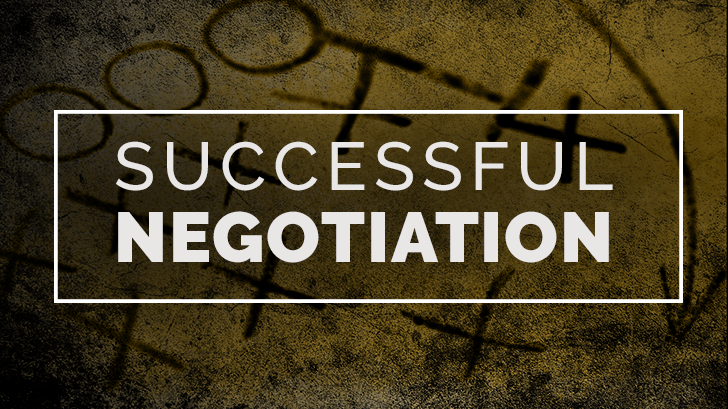What does it mean to have a car sales negotiation win? It means that you and your customer both walk away happy. Anything less, and you’ve failed as a sales professional because either you lost the sale or you’ve lost a repeat customer. Neither scenario earns you a long, lucrative sales career.
Fortunately, there are easy-to-follow tips you can work into your sales process that will improve your customers’ satisfaction while also earning you higher profits and more closed deals. Sounds like a car salesperson’s dream?
Read on to learn eight of the most effective negotiation tips you can start using with your next customer.
1. Keep Car Sales Customers Engaged
Leaving the customer alone needs to be rare and, when it’s necessary, you better keep it short. When this happens, you must have something to keep them busy.
In the old days, it was a three-ring binder with a bunch of stuff in it, but in today’s digital world it should be a tablet that you open to your dealership’s social page where they can read reviews, watch walkaround videos, and see customer engagements. Bottom line: keep them busy and off their phone if at all possible.
2. Present to Defend
Presenting the “first pencil” to a customer is more than just reading a bunch of numbers and hoping they pick one. A typical first pencil will consist of price, trade, down, and payment in some form—and if you’re not skilled, it’ll be four areas to lose gross or potentially the sale.
Presenting to defend is making sure you don’t over explain every number on the worksheet. Otherwise, it’ll result in a long, drawn-out grind. Keep your initial presentation short, sweet, and on point, with no nervous chatter that talks through the deal.
3. Short Term and Cash Are King
True professionals focus on turning a one-time customer into a lifetime customer. Long-term success in the car business is about customer retention and managing their trade cycle. Unfortunately, too often we take the path of least resistance and jump right to presenting eighty-four months with zero down—which is bad for us, but it’s horrible for the customer.
They’ll be lucky if they have equity in forty-eight months. Therefore, the more you get down with the shortest term possible, the better it will be, and this is best for all parties in the long run.
4. Refocus Car Sales Objections
Refocusing the customer’s price or trade objections to down payment is critical for controlling and directing the negotiation. After your initial presentation of the first pencil, the customer may address the selling price or trade value, while we want to focus on down and payment to maximize gross and close on budget.
The key to refocusing is to acknowledge their concern, followed by an either/or question based on the down payment. This allows you to determine whether it’s a real objection or just a reflex response.
5. Emphasize Customer Benefits
Everyone tunes in to their favorite radio station—WIIFM (What’s In It For Me) and your customers are no different. Be prepared to justify your numbers and focus on selling the customer on their benefits.
If their concern is down, then explain that the more they put down, the less they finance and the more they save in interest, not to mention they’ll have more equity. If it’s the payment and term, explain to them that it’s based on an accelerated equity program and you may be able to extend the term.
6. Use the Power of Suggestion
Homer Simpson said, “There’s no such thing as stupid questions, just stupid people that ask questions.”
Asking customers what they want to pay is an easy way to get a ridiculous answer. Of course they’ll lowball you—we would do the same thing if we were in their position. Instead of asking open-ended questions, always suggest a number to get their thinking up.
Say things like “How close to $39,995 were you thinking? More like $39,500?” The goal of suggesting numbers is to control the conversation and pull out their top numbers so you can negotiate on the difference.
7. Drive Car Sales with Effective Closing
When negotiating a car deal, we tend to drop our numbers in large increments, which makes it challenging to close the deal and extremely hard to hold gross. If you lower your price in $500 or $1,000 increments it makes the customer think big numbers also.
Whether you’re negotiating price, trade, or payment, always start with smaller numbers, then reduce the amount on each additional drop. For example, if your initial drop is $400 and the customer still won’t go for it, the second drop should be $225, then the third $120, until there is no more room left.
8. Use Easy Bumps to Increase Customer Price, Payment, or Down
The key to easy bumps is timing, tone and inflection, and body language. When the customer gives you a number, it’s important to respond immediately.
For example, the customer says, “We were thinking $425 per month.” Up to? “Maybe $450.” For the car you really love? “We can do $460, but that’s the max.”
You’ll find that the customer will typically give you one bump, and if you’re good maybe two. Any bump is better than no bump, and these little advantages will help you score the win/win outcomes that are the end goal of every good negotiation tip.
In the world of car sales, negotiation isn’t just about closing a deal—it’s about creating a winning experience for both you and your customer. By implementing these strategies, you’ll not only increase your chances of securing higher profits but also build relationships that drive repeat business and referrals. With every successful car sales negotiation win, you keep the customer’s needs and satisfaction at the center
This article was adapted from the book Frictionless written by Tim Kintz.
Tim Kintz is the president of The Kintz Group, the automotive industry’s premier sales and management training company.













